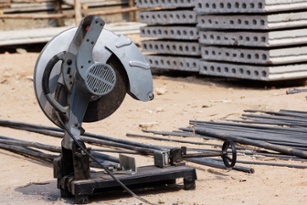
Choosing One Turnkey Metal Manufacturer: What You Need To Know
January 22, 2016
 Managing multiple supplier relationships is an organizational challenge. When you decide to work with a single contract metal manufacturer, you benefit in many impactful ways. For example, you only have to manage one point of contact. With a single purchase order, you also minimize cost.
Managing multiple supplier relationships is an organizational challenge. When you decide to work with a single contract metal manufacturer, you benefit in many impactful ways. For example, you only have to manage one point of contact. With a single purchase order, you also minimize cost.
Visiting too many supplier facilities is a drain on your time and budget. You lower travel expenses associated with multiple sources when you consolidate metal parts manufactoring suppliers. Plus, reduced markups and handling costs give you more funding to spend on other areas of your business.
Essential Benefits Of Partnering With A Single Supplier
The advantages of a single source metal manufacturer extend even further. The right turnkey supplier delivers consistent quality and can remedy issues with potential defects easily and efficiently. Optimized services enable your supplier to deliver parts faster and you end up with a better overall price point by partnering with one expert due to improved costs for purchase orders and material costs.
Finally, you have the option to order a complete part, helping you save time and money on assembly and freight. Rates for assembly are usually less expensive with a supplier than internal rates at your OEM.
Your metal manufacturer can fit far more assembled units (as opposed to disassembled parts) in a smaller space. In fact, disassembled parts often take up to three times more space in shipping containers. Your supplier maximizes freight efficiency when packaging complete assemblies.
The 5 Foundational Services A Turnkey Supplier Must Offer
To reap the rewards of a single source supplier, you need to work with one that offers a comprehensive solution. As you work to identify your ideal partner, confirm that potential suppliers offer the following foundational services:
1. Industrial fabrication
2. Industrial welding
3. Custom machining
4. Metal finishing
5. Mechanical assembly
You may not choose to use all of these services. However, most OEMs request a combination of some. The more services you use with a single supplier, the more cost effective they become. If you begin with raw material and move to a completed unit, the five services listed above will make up most of your manufacturing process.
Warning Signs A Metal Manufacturer Can’t Meet Your Needs
Some suppliers claim to offer a turnkey solution, but you must investigate what processes are handled at their facilities and which ones are contracted out. Often, manufacturers build a “consortium” of partners to take care of foundational services.
It’s common to outsource certain specialized services even at the most complete organizations. However, some suppliers outsource almost all of your metal manufacturing processes. This strategy is far from efficient.
You should also find out whether your manufacturer supports a consistent scale of parts throughout each process. For example, a supplier may claim it can weld a 20-ton part. If true, it should be able to machine the same part. While some suppliers support large parts-manufacturing in one area, they have limited abilities for other services.
You need a supplier that’s honest and transparent so you know exactly what you’re getting when you give it your business. You may choose to work with a metal manufacturer that has a reputation for being reliable, but you can always double check by conducting an on-site audit to review an order from entry through shipment. You’ll see the supplier’s quality standards and process capabilities first hand, allowing you to make a more informed decision.
Are you thinking about consolidating suppliers? Contact us today.
You Might Be Interested In
Industrial Fabrication
October 29, 2019
Robotics in Tomorrow's OEM Supply Chainmechanical assembly
August 22, 2018
The Value of Part Assembly Solutions for OEMs